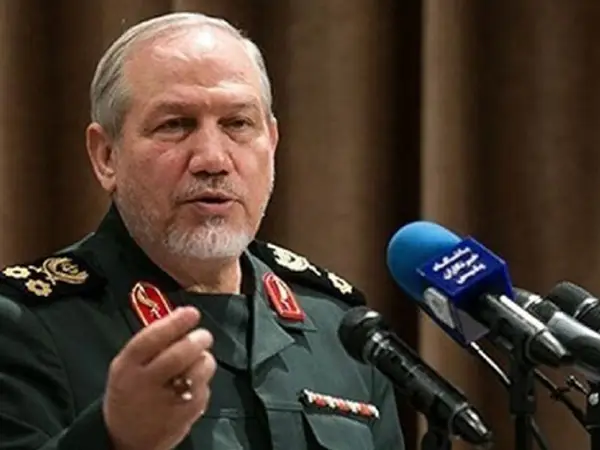A former IRGC Commander says even if the current unrest comes to an end, protests and uprisings may reoccur if the government fails to solver Iran's problems.
Yahya Rahim-Safavi, who is now military adviser to Supreme Leader Ali Khamenei, reassured the nation that the unrest will come to end, however, he warned that it might not be the last one. He asked: "Cannot the IRGC and the Basij militia sort out what we are currently seeing in this country?" The general was talking about the violent uprising that has entered its third month.
Rahim-Safavi spoke on the same day that reformist commentator and political activist Hamid Reza Jalaeipour said: "Iran has not yet entered a revolutionary situation, but if the current unrest continues, the country will move toward a revolutionary phase."
This comes while many in Iran and abroad, including French President Emmanuel Macron have attested that the uprising in Iran has already turned into a revolution.
According to Ettela'at newspaper, Jalaeipour said that protesters in the streets of Iranian cities are demanding "structural changes," which is Iranian politicians' euphemism for "regime change." This is evident, he said in the slogans heard in the streets and at the universities.
He added that when society moves toward revolutionary conditions and governments try to stop the revolution, it means that those governments have already lost legitimacy, efficiency, and many other things.
He argued that in such societies the opposition has been successful in winning the protesters trust. However, Jalaeipour argued that protesters do not trust the Iranian opposition, without saying who that opposition is in his view.
It is possible that he mentioned lack of trust in opposition to protect himself against censure by the government. Self-censorship is an important tool for pundits in Iran who are quoted in government-controlled media.
The popular protests, however, have no known leaders, although some figures in the diaspora do appear as possible influencers, especially in a transition period.
Jalaeipour went on to say that around 80 percent of Iranians are unhappy with the government's performance, stressing that the current situation is worrying.
The commentator added that the bazaars in Tehran, Rasht and some other cities are on strike and if this continues and spreads to other cities, this means that part of the Iranian society that has been silent so far has been activated and is going toward a revolutionary situation.
Meanwhile, another reformist activist, Gholam Ali Rajaei has said that "A change in approach is in the interest of the government, the regime and the country." Rajai added: "It is getting late for a change."
Rajaei added: "So far there has been no sign to indicate that the message of the ongoing protests has been heard, and I think it is getting late for that."
Other analysts have maintained that it is Khamenei who has to listen to the solutions politicians offer for Iran's problems. Nonetheless, pundits like Rajaei shy away from naming Khamenei or simply fear the repercussions.
Rajaei added: "I even doubt that the government [Khamenei] would even bother to read the message of reconciliation." He reiterated that "reforms are the best solution but not the kind of reforms advocated by political parties." Once again, Rajaei stopped short of naming Khamenei as the individual who should listen to the people and change his autocratic way of running the country.
In the meantime, most of the insulting slogans chanted in the streets call for Khamenei's removal.
